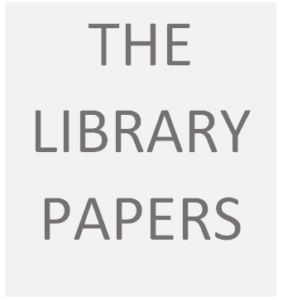Critical Literacy
Definition
Critical thinking involves making judgments based on reasoning: students consider options; analyze these using specific criteria; and draw conclusions and make judgments. Critical thinking competency encompasses a set of abilities that students use to examine their own thinking, and that of others, about information that they receive through observation, experience, and various forms of communication. (BC Critical Thinking Competencies )
Critical literacy requires readers to move beyond a basic understanding of a text (i.e. “basic literacy”) to take an evaluative view, or what could be called a metacognitive view, of the text in its context from the perspectives of political power and social justice, aesthetic values, and personal affect. In the globalized environment we now occupy, where there are many points of view in play, critical literacy needs to mean more than just the polarized opposition of the “I’m right/you’re wrong” variety; it has to mean more than just being able to poke holes in the other guy’s argument. At its best, critical literacy should lead to a respectful understanding of multiple points of view on any issue, including one’s own, as well as the ability to identify the tenor of any exchange. To help students develop this metacognitive view, they need to be guided to look at the text from a variety of perspectives:
- they need to see how a given text compares to other similar texts (aesthetic values)
- they need to examine how it is used and viewed by others (social uses)
- they need to understand how their own knowledge, experience and attitudes affect their understanding of the text (personal affect)
- and they need to explore how the given text has been constructed (context)
(I use the heuristic of looking “beside, above, below, and behind the text” as the organizing principle to ensure I’ve given considered attention to each of these perspectives.)
There is an expectation that individuals will be changed by this critical examination of the text (i.e. that they will learn from it) and that they will use this knowledge to guide their actions in future (BC Critical Thinking Competencies document), and there is a further implication/hope that their future actions will be ethical in that they are fair minded, balanced and have integrity.
Resources
Librarians and Library Associations
- Association of College & Research Libraries http://www.ala.org/acrl/standards/ilframework
- BCTLA Points of Inquiry http://bctf.ca/bctla/pub/documents/Points%20of%20Inquiry/PointsofInquiry.pdf
- Davis, H. (2010, February 3). Critical Literacy? Information! [Blog post]. Retrieved from http://www.inthelibrarywiththeleadpipe.org/2010/critical-literacy-information/
Assessing Information Quality
- Wikipedia and the Amelia Bedelia Hoax: http://www.slj.com/2014/08/books-media/librarians-react-to-amelia-bedelia-hoax/
- CRAP test and handout: https://libraries.mercer.edu/research-tools-help/citation-tools-help/images/PrintableCRAPtest.pdf
- Asking good questions: Asking good questions: Bloom’s Taxonomy: https://cft.vanderbilt.edu/guides-sub-pages/blooms-taxonomy/
Plagiarism
- Definition and examples: http://www.plagiarism.org/
- Citing sources appropriately: http://www.citationmachine.net/ ; https://owl.english.purdue.edu/owl/resource/560/01/
Copyright
- Government of Canada: http://www.ic.gc.ca/eic/site/cipointernet-internetopic.nsf/eng/h_wr00003.html
- UBC policy: http://copyright.ubc.ca/guidelines-and-resources/faq/basics/
- Copyright Q & A for Teachers http://cmec.ca/publications/lists/publications/attachments/291/copyright_matters.pdf
Copyleft
- Wikipedia: https://en.wikipedia.org/wiki/Copyleft
- GNU—How to Use Copyleft https://www.gnu.org/copyleft/gpl-howto.html
- Electronic Frontiers Foundation: https://www.eff.org/
- Lawrence Lessig: http://www.lessig.org/books/







